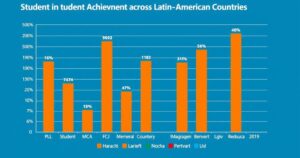Dominican Republic Implements Intensive Deportation Strategy for Undocumented Haitians

The Dominican Republic has initiated a plan to deport 10,000 undocumented Haitians weekly due to migration challenges stemming from instability in Haiti. The policy aims to reduce the undocumented population in the country while adhering to human rights protocols. President Luis Abinader criticized the international community’s delay in addressing the situation in Haiti, asserting the Dominican Republic’s right to act. Significant deportations and the construction of a border wall illustrate the government’s firm stance on immigration issues.
On October 2, 2023, the Dominican Republic announced an initiative to deport 10,000 undocumented Haitian migrants each week as part of an effort to address the significant challenges posed by the influx of migrants from Haiti. This decision was articulated by presidential spokesman Homero Figueroa, who emphasized that the operation is designed to mitigate the large undocumented populations residing in Dominican communities. He stated that the deportations would commence immediately and would follow “strict protocols that ensure respect for human rights.” The announcement follows concerns regarding the international community’s perceived inaction regarding the situation in Haiti, where considerable areas have been overtaken by gang violence. In response to the instability, some months ago, a United Nations-sanctioned force led by Kenya was deployed to the nation to assist in restoring order. President Luis Abinader, who has maintained a stringent stance on migration issues since assuming office in 2020, articulated a strong message at the United Nations regarding the responsibility of the international community. He stated, “We warned at the United Nations that either it and all the countries that had committed themselves act responsibly in Haiti, or we will.” In parallel with these policies, President Abinader has overseen the construction of a substantial 164-kilometer (102-mile) concrete barrier between the Dominican Republic and Haiti, with intentions to extend this structure following his re-election for a second term in May 2023. The Abinader administration has significantly escalated deportation efforts, reporting that 250,000 undocumented Haitians were expelled in 2023 alone. This ongoing situation highlights the complex interplay of migration, diplomatic relations, and national security concerns facing the Dominican Republic as it navigates the challenges posed by emergent humanitarian crises.
The Dominican Republic shares the island of Hispaniola with Haiti, which has experienced significant instability due to political turmoil, economic collapse, and rampant gang violence. This crisis has led to an increase in migration from Haiti to the Dominican Republic, prompting the Dominican government to adopt stricter immigration policies in response. Under the leadership of President Luis Abinader, there has been a notable shift towards a more hardline approach to unauthorized immigration, with an emphasis on protecting national interests and maintaining order in Dominican society. The context of international actions, including the deployment of a UN-led force, further shapes the Dominican Republic’s response to the Haitian refugee situation.
In summary, the Dominican Republic’s recent policy initiative to deport substantial numbers of undocumented Haitians reflects a decisive governmental response to a complex and pressing migration crisis. The actions stem from an urgent need to manage demographic pressures influenced by instability in Haiti and the perceived inadequacy of international interventions. The Dominican administration’s commitment to upholding human rights amid these mass deportations indicates an effort to navigate the delicate balance between national security and humanitarian obligations.
Original Source: www.lemonde.fr








